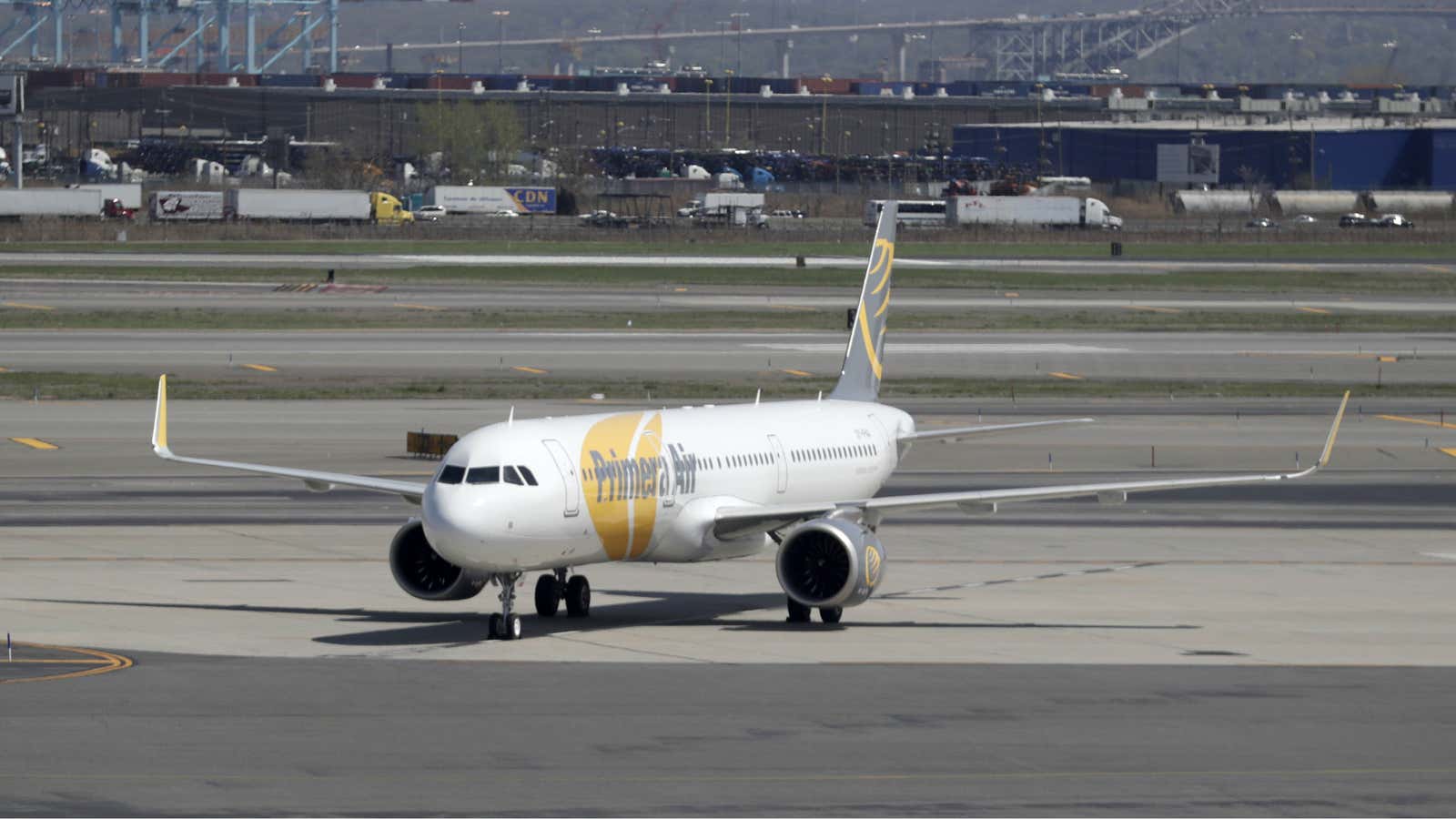Riga-based airline Primera Air will cease operations as of midnight today (October 1), according to a statement from the company’s board.
The airline—which was founded 14 years ago as a short-haul carrier in Europe and the Middle East—asserted itself in 2018 as one of the latest low-cost, long-haul carriers offering no-frills fares across the Atlantic. (Fares were as low as £99 one way from London to New York.) In a statement given to Quartz after a leaked memo to company employees circulated online, Primera’s board cited aircraft delivery delays and its costly wet-lease stopgap measure as reasons it couldn’t remain solvent.
2018 began with a fantastic start of our low-cost long-haul project with a brand-new Airbus 321neo fleet, however, due to severe delays of aircraft deliveries this beginning ended up being rocky and incredibly problematic: operational issues, cancelations of number of flights, loss of revenues are just a few to mention. In addition, to fulfill our obligations in front of passengers, Primera Air leased in aircraft and bore additional costs of over €20 million.
When asked what passengers should do if they have flights booked with the airline, a spokesperson told Quartz that “Unfortunately, all employees of Primera Air are let go and we don’t have more information.” The company has updated its website with a statement announcing its closure.
According to IATA guidance (PDF), passengers with booked flights on airlines that go under have a couple (admittedly not great) options including appealing to a credit card company for services not rendered or filing a travel insurance claim. If a passenger is left stranded by a bankrupt airline—as was the case in 2017 with Monarch Airlines—European airlines are known to offer nominally priced “rescue fares” for travelers who aren’t covered by insurance.
Update: Norwegian Air announced on Tuesday it will provide rescue fares for passengers who are stranded midway on long-haul routes between London Gatwick and JFK, Paris and New York (Newark and JFK), and Paris and Boston. The fares are offered at a 50% discount on a standard economy fare, excluding taxes, and are available until October 14.
The news begs the question of what might happen to other similar carriers working on the same business model. Enabled by hyper-efficient aircraft and bare-bones service standards, the low-cost long-haul trend has disrupted the industry since Norwegian entered the scene.
However, plenty of critics have pointed to unsustainable growth strategies, reliance on a single type of aircraft, as well as the business model’s dependence on low fuel prices to be feasible. Even low-cost darling Norwegian has had problems due to its reliance on Boeing Dreamliners with troublesome Rolls Royce-manufactured Trent 1000 engines, leading to its own costly wet-lease operation. For cost-conscious passengers though, low cost long haul remains a sweet—if by no means certain—deal.
